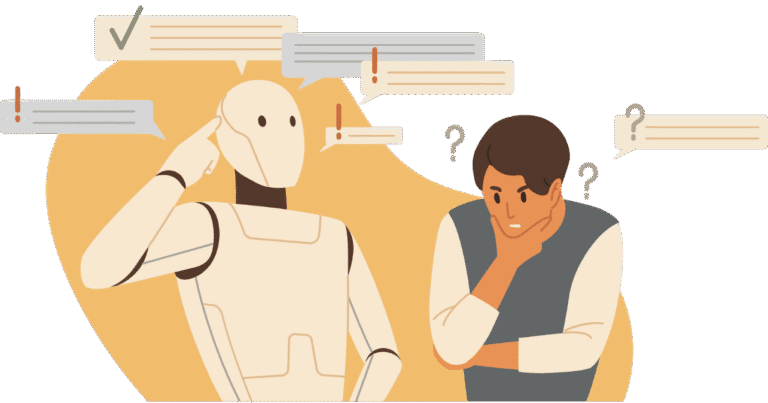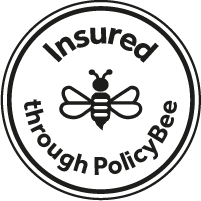Why You Need the Elementor Accessibility Plugin Now
You’ve spent hours designing your website in Elementor, making sure every section looks perfect. But have you ever stopped to think: Can everyone actually use it?
If your website isn’t accessible, you could be excluding thousands of people, and not even realise it.
Many websites built with Elementor look great but fall short when it comes to accessibility. That’s a big problem. Not only for visitors who rely on accessibility features but also for you as a website owner. Poor accessibility can harm your SEO, damage your reputation, and even get you into legal trouble.
The good news? The Elementor Accessibility Plugin is here to make things easier. It’s a simple tool that helps you fix common accessibility issues, without messing around with code.
Let’s take a look at why this plugin matters and how it can help you build a better, more inclusive website.
What is the Elementor Accessibility Plugin?
Overview of Elementor Ally Plugin
The Elementor Accessibility Plugin — also called Elementor Ally — is a free tool developed to help Elementor users make their websites more accessible. It’s built to work seamlessly with Elementor and helps you identify and fix issues that could prevent people from using your site.
It’s not a magic fix that solves everything, but it’s a great starting point for making your site more inclusive.

Key Features of the Elementor Accessibility Plugin
Here’s what the plugin offers:
Automatic accessibility checks on your pages
Keyboard navigation improvements
Colour contrast adjustments to meet WCAG standards
Screen reader compatibility
Easy settings panel with simple toggle options
Supports WCAG and ADA compliance
Whether you’re a small business owner, blogger, or web designer, this plugin can make a real difference.

Why accessibility matters for your Elementor website
What Is Website Accessibility?
Website accessibility means that your website can be used by everyone, including people with disabilities. That might be someone who:
Can’t use a mouse and relies on keyboard navigation
Has visual impairments and uses a screen reader
Struggles with colour blindness and can’t read your text
Making your website accessible is about making sure everyone can browse, read, and interact with your content.
Common accessibility issues on WordPress & Elementor sites
Many WordPress and Elementor websites include barriers that make them difficult to use. Some of the most common issues include:
Poor colour contrast between text and background
Missing alt text on images
Inaccessible pop-ups and forms
Broken keyboard navigation
Small font sizes or hard-to-read fonts
These are easy mistakes to make, but they can create huge problems for your visitors.
The impact of an inaccessible website
Ignoring accessibility doesn’t just harm your visitors. It can affect you too:
You lose traffic – People leave your site if they can’t navigate it
You risk legal action – Laws like the ADA require websites to be accessible
Your SEO suffers – Search engines favour accessible websites
You damage your brand – Accessibility shows that you care about your audience
If you want to build a website that’s welcoming and professional, accessibility should be at the top of your list.
How the Elementor Accessibility Plugin solves these problems
Easy Setup and Integration with Elementor
One of the best things about the Elementor Accessibility Plugin is how easy it is to use. You don’t need to be a developer or accessibility expert.
Here’s how it works:
Install the plugin from the WordPress repository.
Activate it.
Adjust a few simple settings — no coding required.
Once it’s set up, the plugin runs in the background and helps keep your site accessible.

Real-time accessibility improvements
The plugin helps you fix issues as you build. For example:
It checks if your text has poor colour contrast and suggests changes.
It alerts you if you forget to add alt text to an image.
It ensures your website can be navigated by keyboard.
It improves how screen readers understand your content.
This means you don’t need to wait for an audit or hire an expert — you can fix accessibility problems while you design.
Compliance with WCAG and ADA Standards
The Elementor Accessibility Plugin is built to help you follow key accessibility standards like:
WCAG (Web Content Accessibility Guidelines)
ADA (Americans with Disabilities Act)
It won’t guarantee full compliance (no plugin can) but it will bring your website much closer to meeting these standards.

Elementor Accessibility Plugin vs other accessibility plugins
How It Compares to Popular Accessibility Plugins
There are plenty of accessibility plugins available for WordPress, like One Click Accessibility or WP Accessibility, but many of them:
Don’t integrate well with Elementor
Offer limited customisation
Slow down your website
The Elementor Accessibility Plugin is designed specifically for Elementor users. That means:
✅ Seamless integration
✅ Lightweight and fast
✅ Built for Elementor layouts and widgets
Why choose Elementor’s built-in accessibility solution
If you’re already using Elementor, this plugin is a no-brainer. It’s built by the same team (or closely associated contributors) and designed to work perfectly with Elementor’s structure.
You’ll spend less time troubleshooting and more time creating an inclusive website.
Who should use the Elementor Accessibility Plugin?
This plugin isn’t just for big businesses or web agencies. It’s for anyone who wants to make their website better.
You should use the Elementor Accessibility Plugin if you are:
A website owner who wants to welcome more visitors
A small business looking to protect your brand and avoid legal risk
A blogger who wants every reader to enjoy your content
A freelancer or web designer who wants to offer accessibility as part of your services
Real-world example:
Imagine you’re running a local café and have a beautifully designed Elementor website. But someone with limited vision visits your site and can’t read the menu because of poor colour contrast. That’s a lost customer.
The Elementor Accessibility Plugin helps you avoid this.
How to install and set up the Elementor Accessibility Plugin
Here’s a quick step-by-step guide to get you started:
Step-by-Step Installation Guide
Go to your WordPress Dashboard
Click on Plugins → Add New
Search for Elementor Accessibility Plugin or Elementor Ally
Click Install and then Activate

Recommended settings for better accessibility
Once installed, go to the plugin settings and:
Enable Keyboard Navigation
Turn on Contrast Check
Make sure Screen Reader Support is active
Check all forms and buttons are clearly labelled
Pro tip:
Always test your website using your keyboard only, if you can’t navigate without a mouse, neither can some of your visitors.
Frequently asked questions about the Elementor Accessibility Plugin
Is the Elementor Accessibility Plugin free?
Yes, it’s free to use and available in the WordPress plugin repository.
Will it slow down my website?
No, it’s lightweight and built to work smoothly with Elementor.
Can it guarantee full ADA or WCAG compliance?
No plugin can guarantee 100% compliance. It will help, but you should also review your content manually.
Do I still need to check content accessibility?
Yes. The plugin supports technical aspects, but you’re responsible for writing accessible content, adding alt text, and ensuring clear language.
Final thoughts: make your website accessible today
Accessibility isn’t just a technical issue, it’s about people. By using the Elementor Accessibility Plugin, you’re making sure that everyone can visit, navigate, and enjoy your website.
You’ll improve your user experience, strengthen your SEO, and show that your brand values inclusion.
So, why wait?
Your visitors deserve a website that works for them, no matter how they browse.

Ready to make your Elementor website accessible?
Download the Elementor Accessibility Plugin today and take the first step towards an inclusive, user-friendly website.



